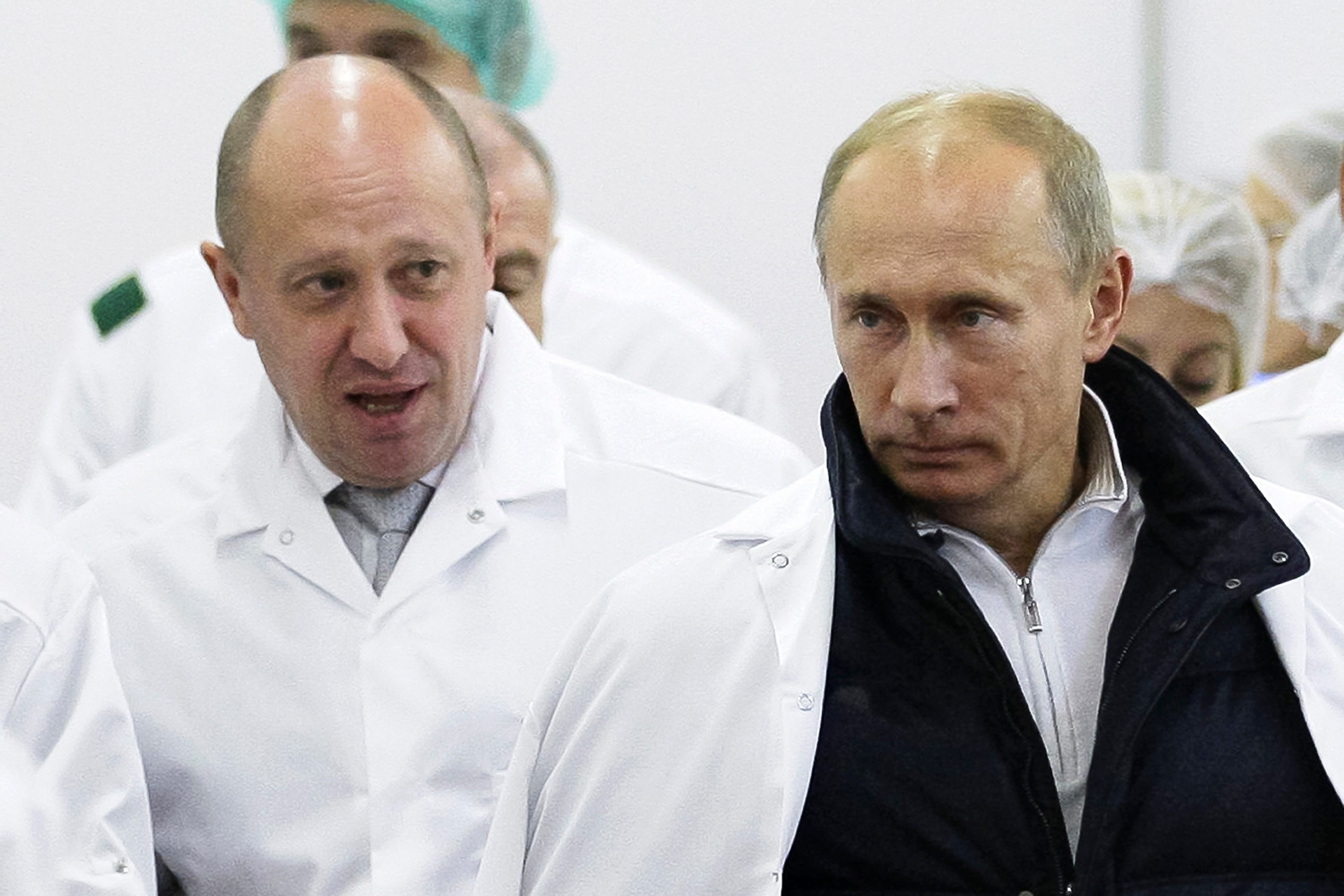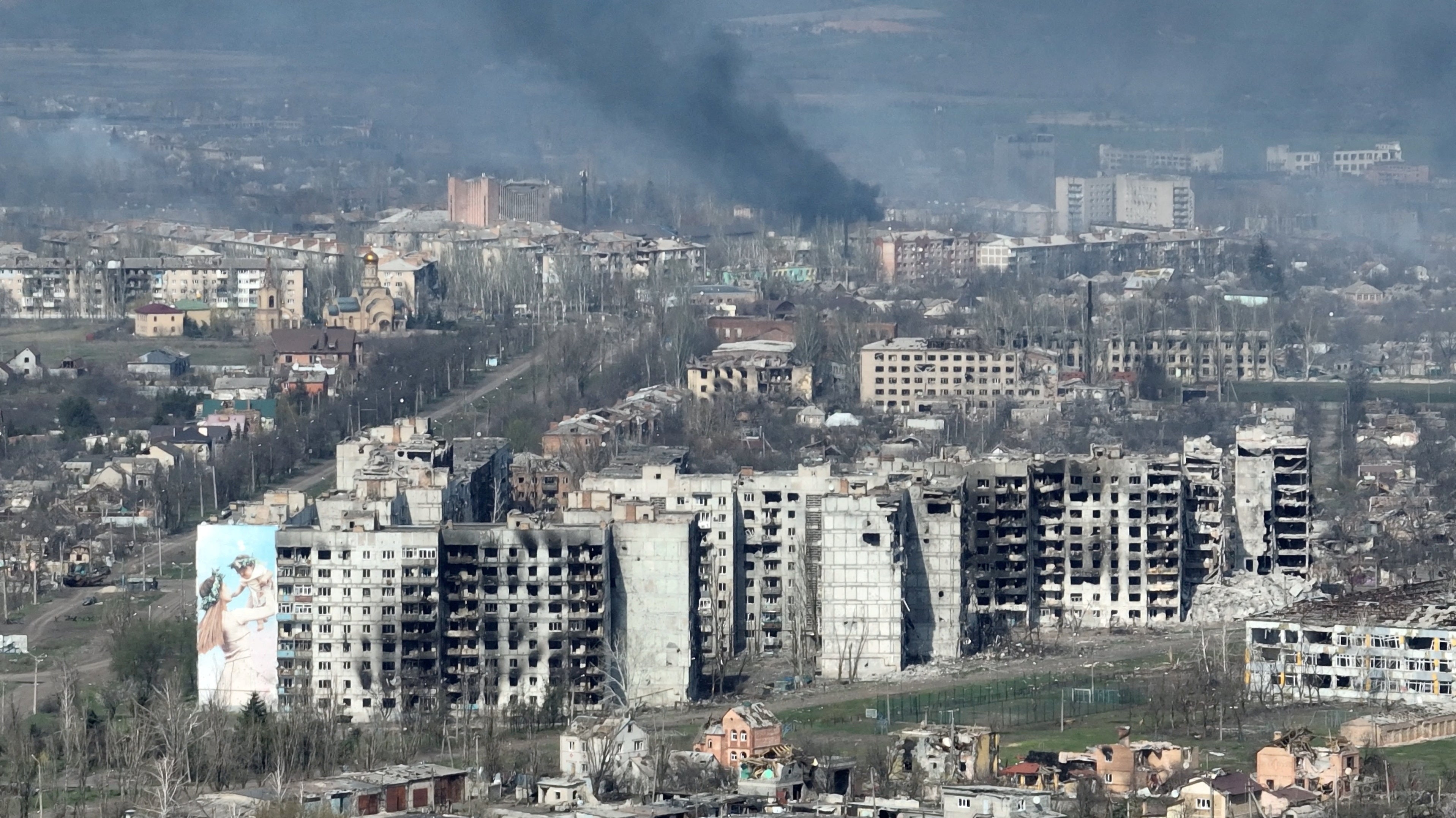How "Putin’s chef", his Wagner Group cashing in on Sudan, conflicts around world Analysis by The Independent
The Independent has published an article arguing that Wagner has drawn most attention in eastern Ukraine, but it seems wherever war breaks out – from Syria to Sudan – this group of mercenaries can be found profiting from bloodshed. Caliber.Az reprints the article.
As troops of rival military strongmen clashed in Sudan, reports surfaced that the airport in Merowe, some 320km (200 miles) north of Khartoum, was being prepared for the arrival of transport aircraft carrying a large consignment of weapons.
The lethal supplies were supposedly sent by the Wagner Group, the Russian mercenary army that has spread across a swathe of Africa after deploying in Libya and Syria, and whose forces are playing a major part in Vladimir Putin’s invasion of Ukraine.
Wagner soldiers have been concentrated in Bakhmut, where bloody street fighting has continued for months. An example of the brutal violence in the Donbas town came this week when two fighters, Alexey Savichev and Azamat Uldarov, admitted they had slaughtered 400 civilians, including around 40 children, who were sheltering in a basement. The pair were among conscripts who comprise a significant part of the company’s fighters in the conflict.
It is not known if Wagner landed arms at Merowe, which has been captured by its Sudanese ally Mohamed Hamdan Dagalo, whose Rapid Support Force (RSF) is engaged in the violent confrontation with the country’s main military headed by General Abdel Fattah al-Burhan.
Some US security officials claim Wagner has been fuelling the violence in Sudan in response to Washington’s attempts to get it thrown out of the country. However, others – including Western and Sudanese officials – question whether Moscow actually wants such destabilisation given that it is due to make substantial military investment in Sudan, including a Red Sea naval base.
What is known is that Wagner has forged highly lucrative links with the RSF and Dagalo, including the creation of gold-smuggling chains from Sudan to Russia via Dubai and Syria.
A large portion of the money earned has gone to fund operations in Ukraine that are costing Wagner an estimated $100m (£81m) every month. Its owner, Yevgeny Prigozhin, has accused Russian military high command of “treason” for failing to supply his fighters with adequate weapons and ammunition. According to the US State Department, Wagner has begun to obtain arms directly from other states including rockets and missiles from North Korea.

Mr Prigozhin, nicknamed “Putin’s Chef” after a catering company he owned was given lucrative government contracts, is also said to own M Invest, which controls Meroe Gold, the third-largest gold producer in South Africa and a mining concern rapidly expanding in Sudan. Both companies have been placed under US Treasury and European Union sanctions.
An investigation by CNN documented 16 military flights from Sudan to Russia via the Syrian port city of Latakia and the Central African Republic (CAR). These are believed to have moved almost $2bn (£1.6bn) in bullion over 18 months, it reported.
Under a deal signed in 2019 with Sudan’s former president Omar Hassan al-Bashir, the Kremlin has agreed to export weapons to the country as well as construct a base at Port Sudan. Calls by Moscow for a ceasefire in the current violence may thus be genuine, if self-serving.
RSF leader Gen Dagalo has strong links with the Russian government as well as Wagner. He visited Moscow on 24 February 2022, the day of the Ukrainian invasion, and again in September while John Godfrey, the US ambassador to Khartoum, was pressing the Sudanese regime to scrap the deal for the naval base.
Samuel Ramani, a Russia watcher and tutor of international relations at the University of Oxford, believes Wagner is keeping its powder dry in Sudan. “I would say they are sitting in a more defensive position; they are not getting a green light from the Kremlin to play a more active role, they are probably staying put for now,” he said. “Obviously if there is civil war and Prigozhin’s mining is threatened, we will see a more active military role.”
But the interests of Wagner and the Kremlin hierarchy have increasingly diverged. Mr Prigozhin, who in the past has been low-profile while his fighters deploy abroad, has begun to increasingly seek the limelight, attacking the Russian military over strategy and tactics in Ukraine. He has been joined in the strident criticism by Chechen ruler Ramzan Kadyrov, whose troops are also in the war, and some of Russia’s hawkish and influential military bloggers.
Russia’s high command in Moscow has begun to retaliate. A prisoner recruitment drive by Mr Prigozhin (himself sentenced to 13 years on charges of aggravated burglary and robbery) has been halted. Senior commanders are asking for Wagner to be placed under the command of the National Guard, moving it away from direct relationship with Russia’s Defence Ministry.
General Valery Gerasimov, the former chief of general staff and now overall commander in Ukraine, has asked political and military bloggers to reduce their coverage of Wagner; this appears to have an effect with some of the most prolific bloggers like Rybar.

Vladlen Tatarsky, a blogger who promoted Mr Prigozhin, was killed in a targeted blast in St Petersburg last month. Authorities accused Russian opposition figures of carrying out the killing with Ukrainian connivance, but a lot of Tatarsky’s posts exposed Russian military shortcomings and it is difficult to understand what Kyiv will gain from his death.
Colonel General Mikhail Teplinsky, head of Russia’s Airborne Forces and who at one stage appeared to support Mr Prigozhin’s criticism, was recently filmed sitting in his office with a portrait of Gen Gerasimov and a screensaver with a picture of defence minister Sergei Shoigu. This was seen as an indication of shifting power balance.
Jockeying for position in Moscow has meant little to Wagner fighters on the Ukraine frontline. Talat Nazarbekov, a young Uzbek captured by Ukrainian forces in Donbas, spoke of deep frustration and disenchantment at the losses being incurred for little gain.
“We have had a hundred people killed and injured for a hundred metres. This does not make any sense,” he told me recently at a detention centre in Ukraine. “We began to realise that a long time ago. The quality of the mobics (newly-mobilised soldiers) was not acceptable, especially those from prisons. We don’t understand the thinking of the senior people, what they are trying to do, where they are going with this.”
Trying to gauge what the future holds for Mr Prigozhin inevitably leads to questions about his relationship with Mr Putin. Some Russian reports maintain Mr Prigozhin’s increasingly loud remonstrations about the military are an attempt to be heard by the president with direct channels no longer available.
According to some, Mr Prigozhin has political ambitions himself, possibly even to replace President Putin in the future. The Russian independent news site Meduza reports he is trying to gain control of the party A Just Russia, whose leader Sergei Mironov has lauded Wagner as “heroic”.
But Viktor Nikitin, a former Wagner employee who left last autumn and now lives in southern Europe, dismisses the notion that Mr Prigozhin will seek to rule Russia.
“That will not happen,” he said. “He is an outsider and the establishment will not accept him, the establishment will protect itself, he knows that. Would Prigozhin directly challenge Putin? That would be very foolish and dangerous.”
Mr Nikitin added: “He has had a lot of money for a long time and now he has power at a time of war. But this type of power will not last in peacetime inside Russia. He can get political power abroad. He can try to run a small country in Africa through puppets for example. But I think he’ll stay in Russia and try to re-establish good relations with the government. He’ll need them to make his money in foreign countries.”
Wagner deployments overseas have been followed by highly-rewarding commercial agreements. In Syria, the Kremlin approved a deal for Russian commercial concerns to receive oil, gas and mining rights on sites captured from Isis. Wagner was contracted by the companies to seize sites, and received its cut.
Mr Prigozhin later struck deals directly with the Assad regime. A company owned by him, EvroPolis, generated $162m (£130m) in revenue in one year from the al-Shaer gas plant and three other sites. It is also now under US sanctions.
In 2018 Wagner was sent by Moscow to support Khalifa Haftar, a rebel general – most of the mercenary forces are now based around oil fields owned by the Gen Haftar.
Fighter jets, air defence systems and armour are stationed at the main military bases at al-Khadim airport, Sirte and al-Jufrah and Gen Haftar’s headquarters in al-Rujma.
Washington has been seeking Wagner’s expulsion from Libya. William Burns, the CIA director, travelled personally to Benghazi to meet Gen Haftar to make the demand in person two months ago.
According to US officials, Gen Haftar agreed to consider Wagner’s withdrawal but asked that the US provide a replacement and that Turkish forces based in Libya should also go. Washington viewed such terms as unrealistic.
Libya is a hub for Wagner operations in Mali, where it is replacing French, British and other Western forces, and the CAR. The company first deployed in Mali in a deal reportedly worth $11m (£8.9m) a month to train and support local forces. Moscow has also supplied Sukhoi warplanes and military helicopters to the government in Bamako. Russian foreign minister, Sergei Lavrov, visited Mali in February, following a trip to Sudan.
It is unclear how cash-strapped Mali will pay Wagner, or for the military purchases. Opposition and civic society groups claim secret deals have been done on mineral rights and that diamond and gold is being smuggled out.
Wagner took over an artisanal gold mine in CAR in 2020 and turned it into an industrial complex; in the same year, the country’s ministry of mines cancelled the licence of a Canadian company and instead gave a 25-year-old concession to a Madagascar-registered firm called Midas Resources, owned by Mr Prigozhin. Wagner’s mining profit from CAR so far is an estimated $1bn (£810m)
Wagner has also moved into timber. A 30-year forestry permit in the Congo Basin was granted to Bois Rouge, a firm located in St Petersburg and owned by people close to Prigozhin, and has traded with Meroe Gold in Sudan.
The Congo Basin is one of the largest stretches of undeveloped rainforest in the world. Developing 30 per cent of it would be an environmental calamity, according to analysts, but would also yield around $900m (£725m) on international markets.
Another former Wagner employee, Roman, who I first met in Simferopol in Crimea in 2014, pointed out how much the company had changed since then.
Roman, who now lives in the Balkans, said: “At the time we were very quiet, we did not want publicity. But wars made Wagner lots of money and Prigozhin decided to become famous. He has also decided to make enemies of powerful people, and that is always dangerous.”








